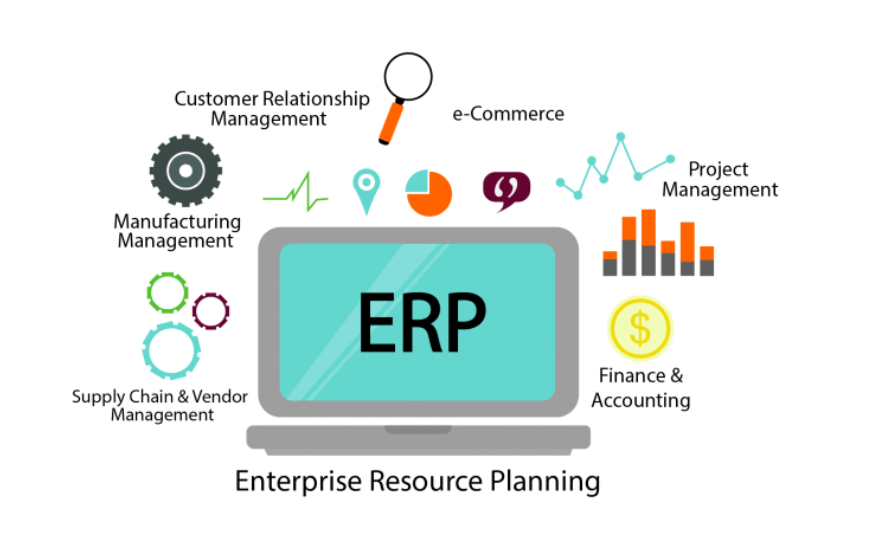
Why Do Enterprises Need CRM (Customer Relationship Management) software?
Large firms must have sophisticated systems in place to deal with complex procedures.
A customer relationship management (CRM) system that has all of the necessary functions may handle this in a sophisticated and clever manner.
A CRM can handle people and processes by,
- Proper utilization of technology to have a thorough awareness of the company’s customers.
- It combines everything into a single integrated system that manages everything from customer interactions to sales operations.
As the CRM procedures are entirely customer-centric, major businesses may stay assured that even the most complex processes will be accounted for.
Installing the best enterprise CRM for your company must not be viewed as a ‘technology-only’ solution, but rather one that addresses all three components: people, processes, and technology.
What is an enterprise CRM?
- Enterprise CRMs are intended for larger, more complicated enterprises. They will be able to deal with a large number of customer-facing departments, large datasets, and stringent regulations.
- Any enterprise business industry may have many sales teams and all of which want access to together the same customer data. As there are multiple people involved during business activities, it would be better if we can use the same system. In this kind of situation Kapture enterprise CRM really shines.
Must-have CRM features for a major organization
A CRM for a large enterprise must include a number of critical characteristics. It may relieve a significant portion of the workload by automating all sales procedures and enabling firms to successfully handle prospects and current clients.
Before you buy, you should investigate the essential features and functionalities accessible, focusing on what is available in the market and which specific functionalities your organization wants. Platforms differ widely, so start by outlining your needs and then do extensive research.
Here are some of the most important elements that your enterprise CRM is going to require:
1. Contact administration
This enables you to classify and organize contacts while collecting critical client data for use in marketing efforts. Not only names and addresses but also contact social media accounts may be included. This is a feature that will be used frequently, so select a layout that meets your requirements, with fields organized logically.
2. Management of customer opportunities
When you quantify sales opportunities, you can identify the kind of customers who are most likely to convert.
3. Management of the leader
- Identify your top customers based on psychographics/demographic information, making lead management significantly more accurate.
- This is concerned with the process of converting prospects into leads by scoring and sending them up the pipeline.
- Sales workers must be satisfied with how this works, and the process must flow in a way that is natural for a firm. Examine your current manual procedure to determine how this fits in.
4. Dashboards and reports
- Utilize customized dashboards and reports to view statistics. Data is delivered in real-time and may be viewed from any portal by sales, marketing, and customer service professionals.
- When you use these statistics correctly, you obtain a significant competitive edge because the guesswork in forecasting and insights is eliminated.
- Accustom yourself to using data and analytics to identify and correct any issues with corporate processes. This is truly intelligent reporting, as essential parameters of sales activity can be broken down by campaigns and teams.
- Reports may be tailored and distributed to the sales and marketing teams to ensure that everyone is on the same page.
5. Personalizable home screen
- Look for a UI (user interface) that is versatile and will handle all you need on the home screen.
- Layouts must be adaptable to your company’s requirements. Look for a system that is simple to use, as this will result in a higher conversion rate.
6. Sales analytics
- Analyse data from previous initiatives to make your future sales campaigns even more effective.
- You require a CRM that will collect data from all sources, such as website traffic, social media, user polls, and so on. You will receive reports on a regular basis that include not just sales data but also sales team performance.
- When it comes to analytics, you get to choose which criteria to include in reports, such as location, stage in the sales funnel, and even sales rep name.
- By recognizing problems before they become major issues, you will be able to work much more proactively, with real-time visibility into the sales process.
7. Mobile CRM
If you have employees who work remotely or in the field, this is a must-have tool. They will be able to use their mobile phone or tablet to access all CRM capabilities, receive notifications, and manage everything from a single spot.
8. Sales Automation
- For effective campaign planning, you must be able to automate the sales process, take control of outbound calls and follow-ups, and organize data.
- In this way, we can reduce manual processes and make them automated ones. Also, we can save our employee’s time.
- Repetitive jobs can be handled by establishing process triggers for certain actions or by providing reminders.
9. Sales projections
- When comparing actual outcomes to expectations, it provides considerably more realistic standards for sales. This way, you can observe if your sales staff is on track and use the information to fine-tune future initiatives.
- Using past and current data and patterns, future sales and revenue figures can be projected. This is a must-have tool if you need to produce projections for months ahead of time or even suggest new geographical areas.
10. Sales collaboration
- Allow your critical team members to collaborate and operate across departments. If you do this correctly, your sales results should improve. There will be no more ambiguity between marketing, sales, and customer service.
- Everyone can utilize the same information, and new information only needs to be entered once. You can be confident that accurate and up-to-date information is being used when calls are made to clients or emails are sent, regardless of which department is involved.
- Customer queries can also be answered quickly, with all essential information displayed on the screen. As your customer service improves, your reputation will improve as well as your ability to establish solid relationships.















